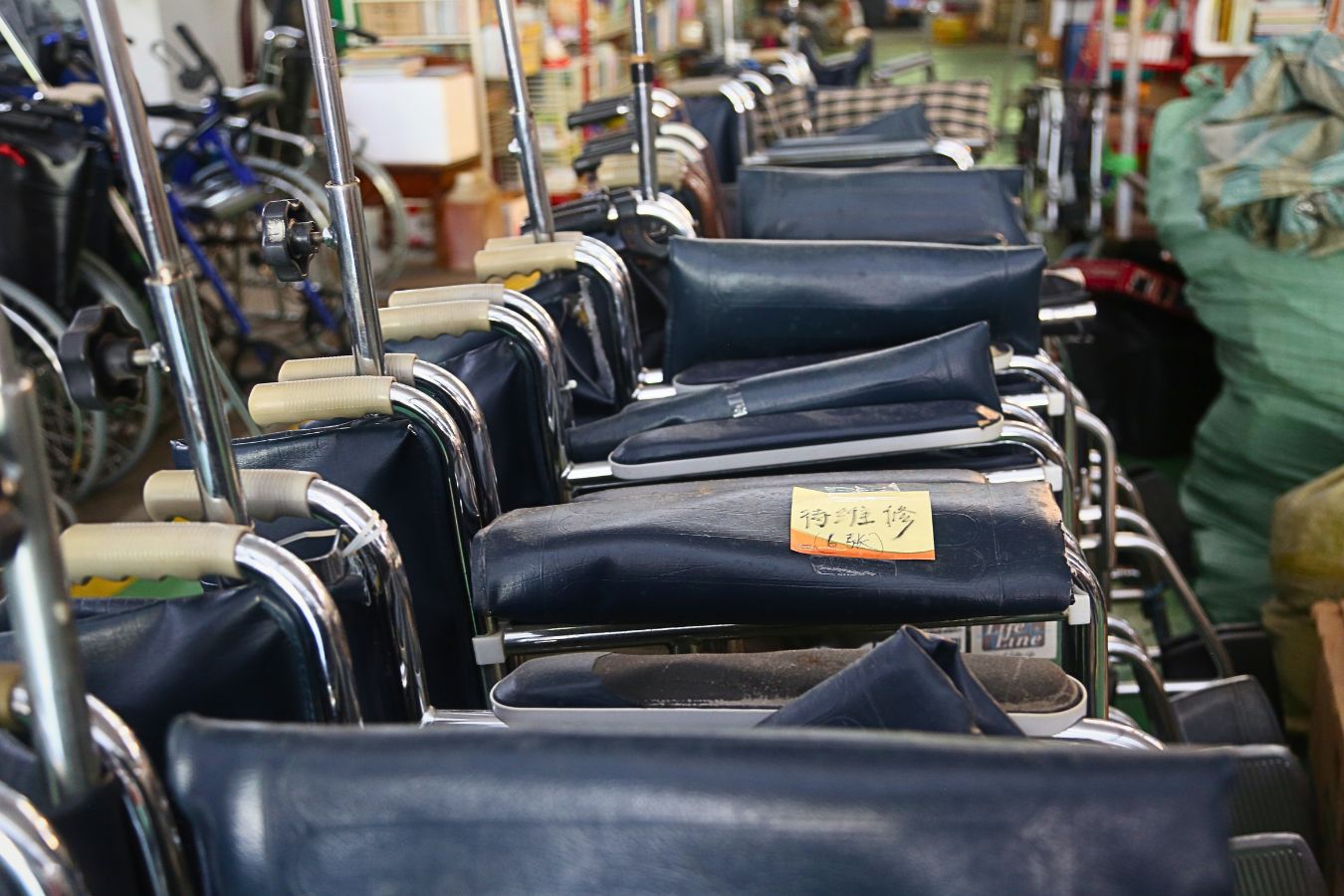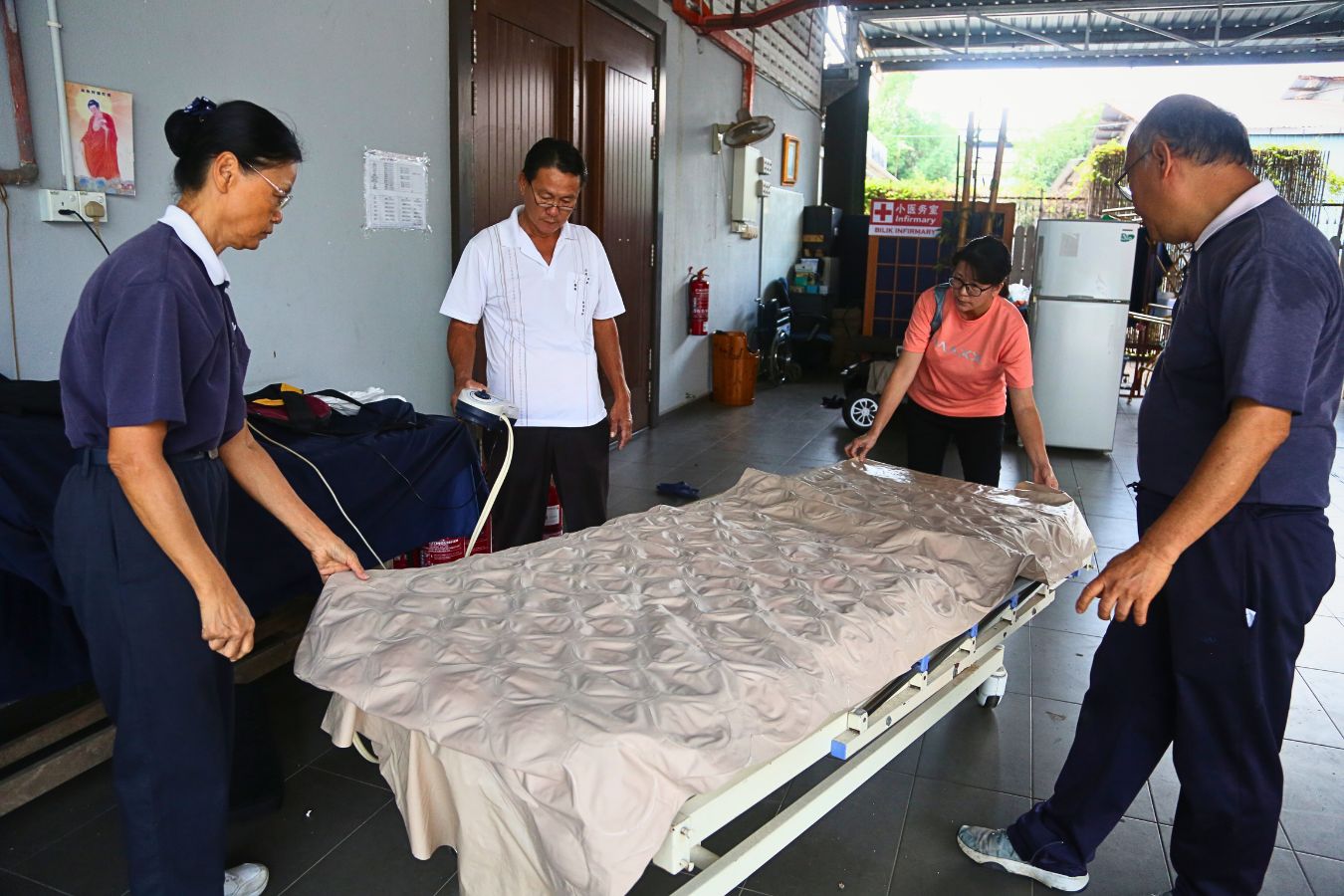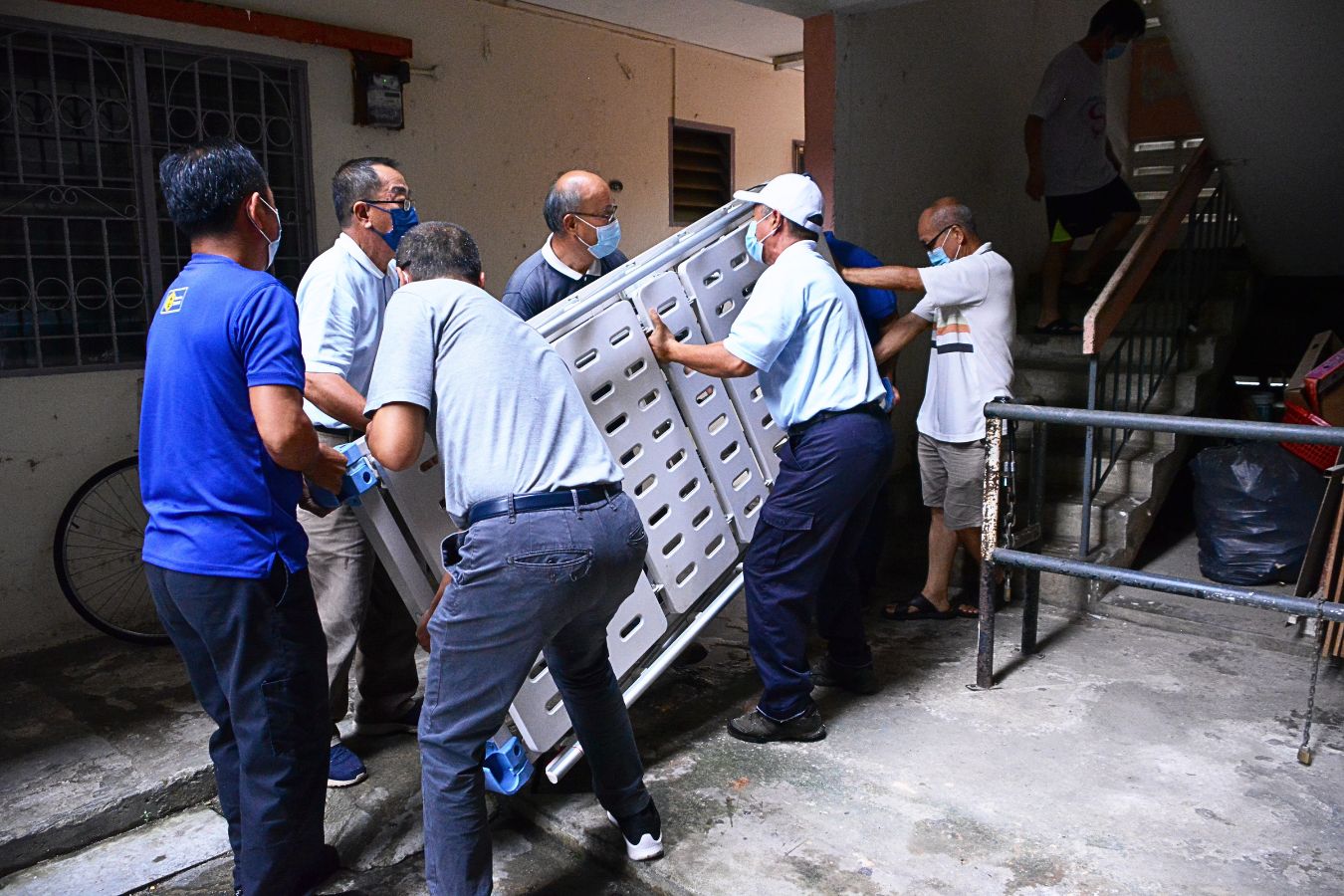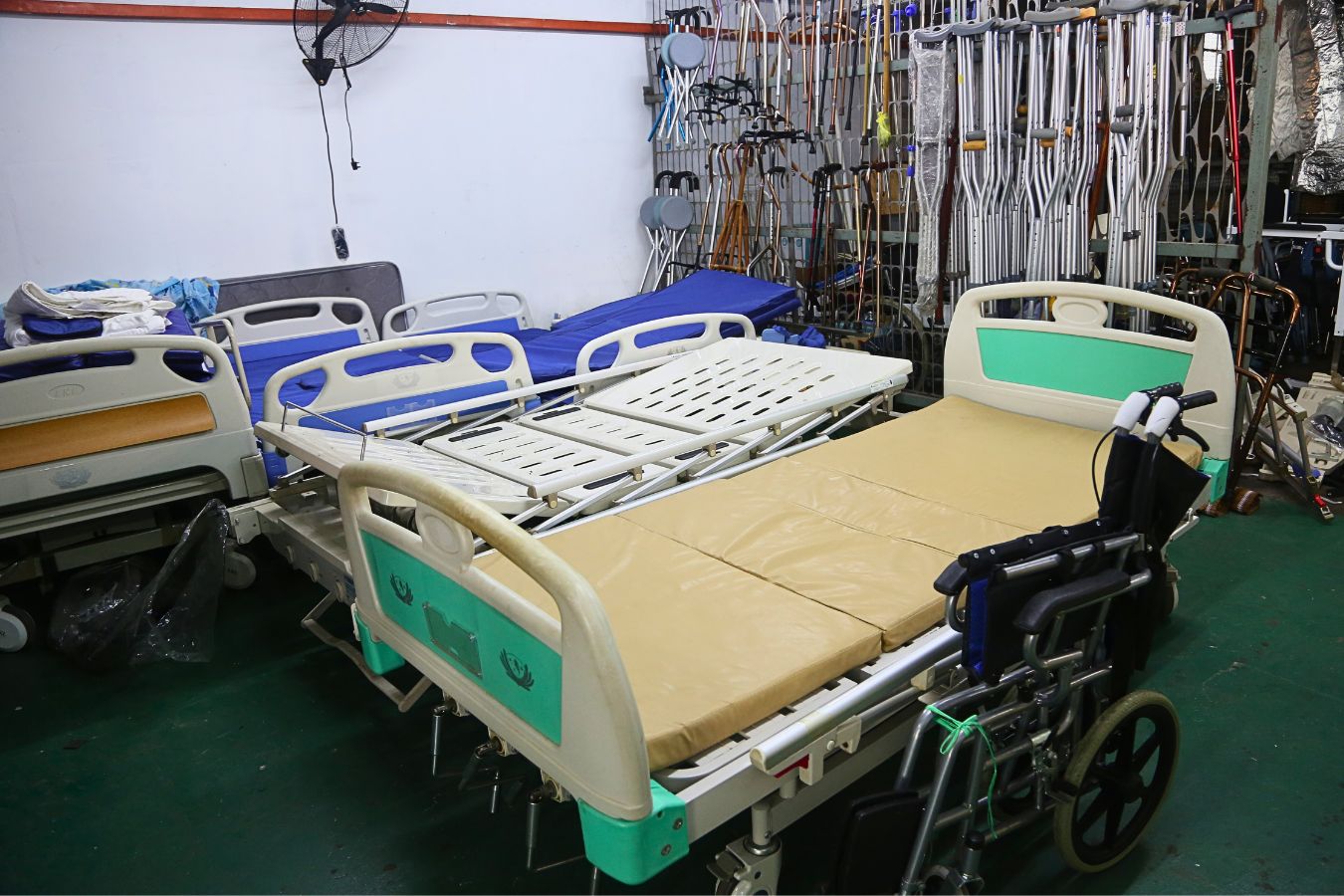
“We drove half an hour to get here, hoping to borrow a hospital bed.” On February 3, 2025, Teo Kim Seng and his wife arrived at the Tzu Chi Ayer Keroh Recycling-cum-Education Centre in Malacca with an urgent request.
This Lunar New Year, celebration was the last thing on their minds. Kim Seng’s elderly mother, in her 80s, had suffered a sudden spike in blood pressure and fallen into a coma, requiring two weeks of hospitalisation. Just three days earlier, the hospital informed them that her blood pressure had stabilised, and she was to be discharged. Following a relative’s suggestion, they came to Tzu Chi and borrowed an electric hospital bed and a ripple mattress.


Since the launch of Tzu Chi Malacca’s Eco-friendly Assistive Devices Platform in January 2021, such scenes have played out regularly at the recycling centre. Many people have come seeking wheelchairs, hospital beds, crutches, walkers, and commode chairs. In October 2024, Tzu Chi KL & Selangor’s Assistive Devices Centre was also officially established, with the hope of improving patients’ quality of life and fostering a more caring community.
While applicants typically arrange their own transport for the devices, exceptions are made for special cases. During the COVID-19 pandemic, volunteers took the risk of delivering hospital beds themselves. On one occasion, a bed was delivered, only for the volunteers to receive a call just 12 hours later requesting its retrieval. Faced with a grieving child who had just lost both parents, volunteers could only offer words of comfort.
●
Despite the labour-intensive process of cleaning, disinfecting, testing, and repairing these devices, volunteers find fulfilment in their work. Their only wish is for these assistive tools to be well-used, extending their lifespan and benefitting more families in need.




